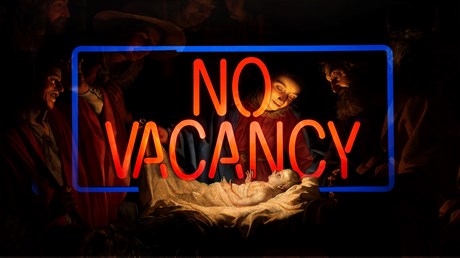The story of the Bethlehem hostel means Christ keeps company with pilgrims, not emperors.

In nativity pageants all over the world, several roles fit well for those terrified of public speaking: cows, sheep, and the innkeeper. The innkeeper, in most dramatic renditions, has no speaking lines. Instead, the person must merely look sad, hold out their hand, and shake their head to say no.
Luke’s gospel tells us that Mary and Joseph laid Jesus in a manger “because there was no room for them in the inn” (Luke 2:7, KJV). Some people are surprised when they find out there is no innkeeper in the Bible—and probably not even an actual “inn,” at least in the way we think of it.
Many experts in this time period argue that the word translated “inn” in our New Testament texts probably doesn’t refer to the Middle Eastern equivalent of a hotel or motel. The problem is not one of overbooked rooms.
New Testament scholar Darrell Bock suggests that the “inn” refers to any form of public shelter—usually a two-story house in which the lower story was for animals and the upper floor was for guests, or a one-story building with a stable attached.
The “inn” may have been the home of Joseph’s or another’s extended family in town—who welcomed them as guests but were unable to accommodate birth-giving in the upper rooms. In no first-century context would a Jewish family have countenanced such a breach of hospitality by turning away strangers, let alone extended family, into the night.
Regardless of what exactly Luke meant by the word “inn,” the larger point stands that not only was Jesus born into humble circumstances—placed in what was probably the feeding trough of an animal—but also that his birth was displaced by a ...
Continue reading...umn ministry
from Christianity Today Magazine
via


.gif)

.gif)
.gif)
